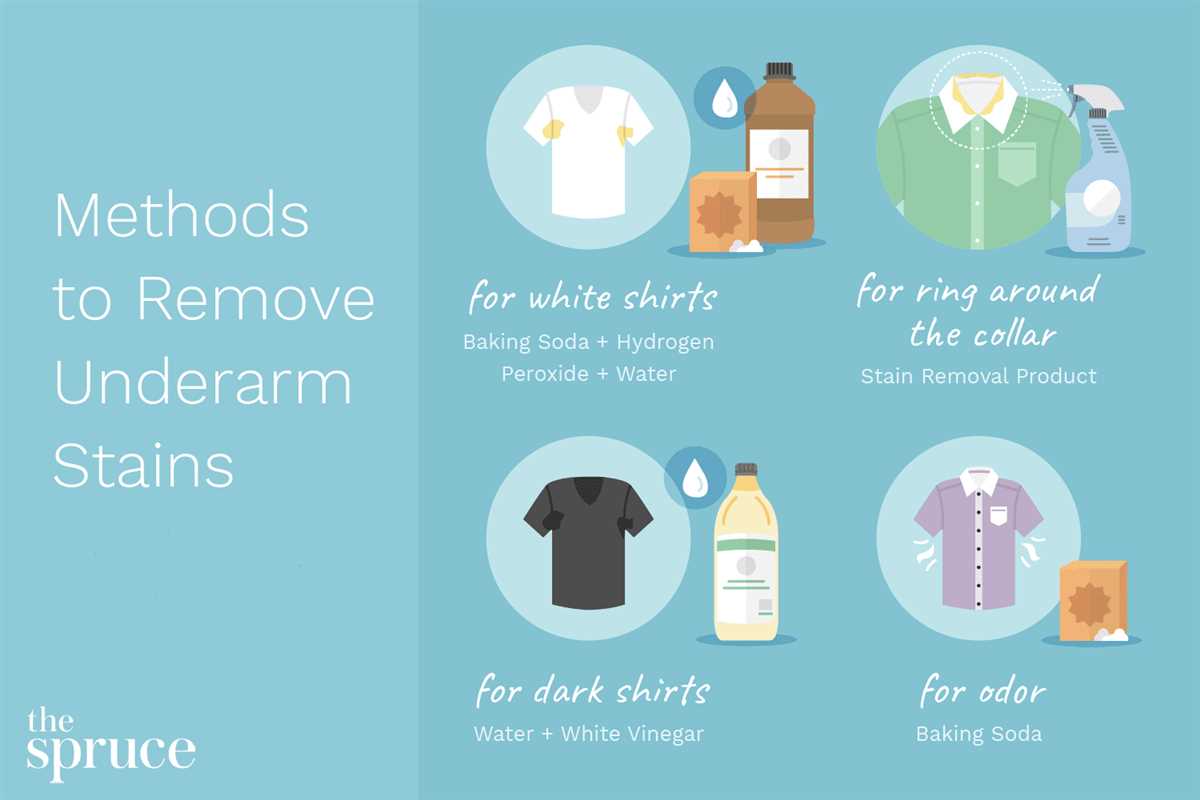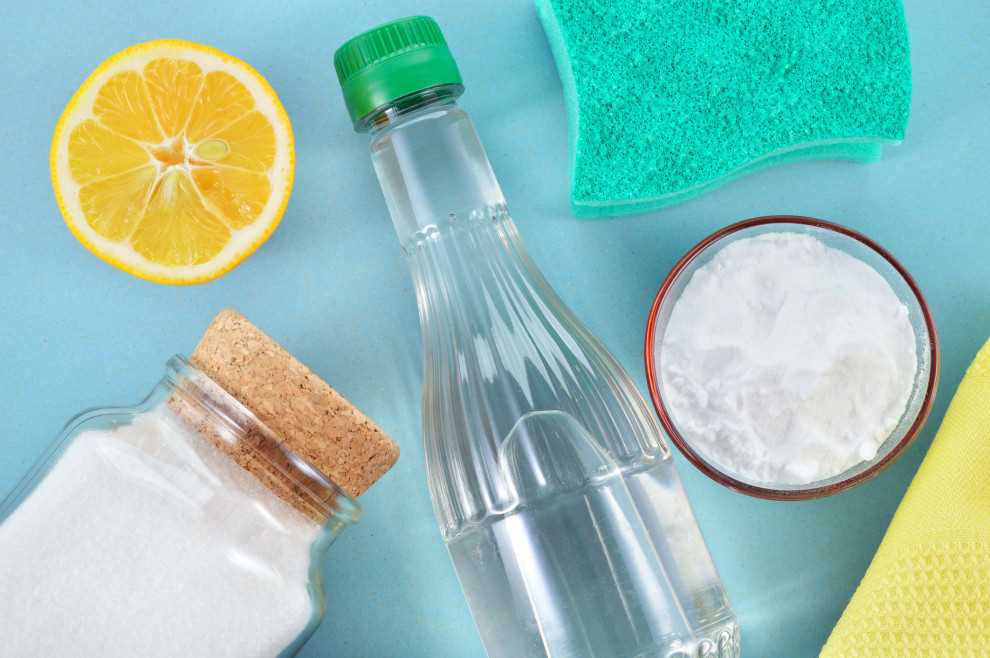




Having sweat odour on your clothes can be an embarrassing and frustrating experience. Whether it’s a persistent smell in your gym clothes or a lingering odour in your everyday wear, getting rid of sweat odour is essential for maintaining fresh and clean garments.
There are several effective methods you can use to remove sweat odour from your clothes. One of the simplest ways is to pre-treat the affected area with a stain remover or a mixture of baking soda and water. Let the solution sit for a few minutes before washing the garment as usual.
Another method to combat sweat odour is to soak your clothes in a mixture of vinegar and water. The acidic properties of vinegar help to neutralize the odour-causing bacteria, leaving your clothes smelling fresh. After soaking, wash the clothes as you normally would.
In addition to pre-treating and soaking, using the right laundry detergent can also make a big difference in removing sweat odour. Look for detergents that are specially formulated to tackle tough odours and contain enzymes that break down sweat and bacteria.
Remember to always check the care label of your clothing before using any of these methods to remove sweat odour. Some fabrics may require special care or be sensitive to certain cleaning agents. By following these effective methods and taking proper care of your clothes, you can say goodbye to sweat odour and enjoy fresh-smelling garments every time.
Understanding Sweat Odour
When you exercise or engage in physical activities, your body naturally produces sweat as a means to cool down. Sweat itself is odorless and consists mainly of water and salt. However, the unpleasant smell associated with sweat comes from the bacteria on your skin, which break down the sweat and produce foul-smelling compounds.
The bacteria responsible for sweat odour are known as staphylococcus hominis and staphylococcus epidermidis. These bacteria thrive in warm and moist environments, making areas like the armpits, feet, and groin particularly prone to odour.
The severity of sweat odour varies from person to person and can be influenced by various factors such as diet, hormonal changes, and overall health. Individuals with hyperhidrosis (excessive sweating) may also experience more pronounced sweat odour.
Causes of Sweat Odour

There are several factors that contribute to the development of sweat odour, including:
-
Bacteria: As mentioned earlier, sweat itself is odorless, but the bacteria on your skin metabolize the sweat and release volatile compounds that produce the unpleasant smell.
-
Apocrine Glands: These glands are located in areas with high hair follicle density, such as the armpits and groin. When the apocrine glands secrete sweat, it is rich in proteins and lipids, which create an ideal environment for bacterial growth and the subsequent production of odorous compounds.
-
Hormonal Changes: Hormonal fluctuations, such as those that occur during puberty or menopause, can increase sweat production, making you more susceptible to sweat odour.
-
Dietary Factors: Certain foods, such as garlic, onions, and spicy dishes, can cause sweat to develop a stronger odour. This is because the compounds in these foods are excreted through sweat.
-
Stress and Anxiety: When you’re under stress or experiencing anxiety, your body releases stress hormones, which can increase sweat production and lead to stronger odour.
Understanding the causes of sweat odour can help you take appropriate measures to control and eliminate the odour effectively. By addressing the underlying factors contributing to the odour, you can maintain freshness and confidence throughout the day.
Causes of Sweat Odour
Sweat odour, also commonly known as body odour, is caused by the presence of bacteria on the skin’s surface. These bacteria break down the sweat produced by our sweat glands, resulting in the release of unpleasant odours.
There are several factors that can contribute to the development of sweat odour:
- Hygiene: Poor personal hygiene can lead to an accumulation of bacteria on the skin, increasing the likelihood of sweat odour.
- Excessive Sweating: Individuals who sweat excessively, a condition known as hyperhidrosis, are more prone to sweat odour due to the increased sweat production.
- Diet: Certain foods and beverages, such as spicy foods, onions, garlic, and alcohol, can cause sweat to have a stronger and more pungent odour.
- Medical Conditions: Some medical conditions, such as diabetes, kidney disease, and hormonal imbalances, can cause changes in sweat composition, leading to a foul odour.
- Clothing Materials: Sweat can become trapped in certain fabrics, such as synthetic materials, and provide an environment for bacteria to thrive, resulting in persistent odours.
It is important to identify the cause of sweat odour in order to effectively address the issue. By practicing good hygiene, managing excessive sweating, maintaining a balanced diet, and choosing breathable clothing materials, sweat odour can be significantly reduced or eliminated.
Why Sweat Odour Persists

- Human sweat is composed of water, salt, and waste products such as urea and ammonia. When these substances combine with bacteria on the skin, they can produce an unpleasant odour.
- High levels of moisture and humidity can exacerbate sweat odour, as they create an ideal environment for bacteria to grow and thrive.
- Certain fabrics, such as synthetic materials, can trap sweat and prevent it from evaporating, leading to an accumulation of bacteria and sweat odour.
- Wearing tight-fitting clothes can also contribute to sweat odour, as they can restrict airflow and trap sweat against the skin.
- If clothes are not properly laundered or dried, sweat odour can persist. Bacteria and sweat residue can remain in the fabric, causing the odour to linger even after washing.
- Prolonged exposure to sweat and bacteria can cause the odour to embed itself in the fabric fibers, making it more difficult to remove.
Pre-Treatment Solutions

Pre-treatment solutions are a great way to tackle sweat odour before washing your clothes. These solutions aim to remove stains and odor-causing bacteria. Here are some effective pre-treatment solutions:
- Mix of Vinegar and Water: Create a solution by mixing equal parts of white vinegar and water. Apply this mixture directly to the sweat-stained area of the clothes. Let it sit for 15-30 minutes, then wash the clothes as usual.
- Baking Soda: Make a paste by mixing baking soda with water. Apply the paste to the affected area and gently scrub it using a soft brush or toothbrush. Let it sit for a few minutes, then wash the clothes.
- Lemon Juice: Squeeze fresh lemon juice onto the sweat stains. Rub the juice into the fabric using a cloth or sponge. Let it sit for 10-15 minutes, then wash the clothes.
- Hydrogen Peroxide: Mix equal parts of hydrogen peroxide and water. Apply this solution to the sweat stains and let it sit for 10-15 minutes. Rinse the clothes thoroughly before washing them.
- Dish Soap: Apply a small amount of dish soap directly to the sweat stains. Gently rub it into the fabric using your fingers or a cloth. Let it sit for a few minutes, then wash the clothes.
These pre-treatment solutions can help in removing sweat stains and odour from your clothes effectively. However, it’s important to check the care label of your clothes before using any pre-treatment solution to ensure compatibility.
Pre-Washing Techniques
The first step in removing sweat odor from clothes begins with pre-washing techniques. These methods are designed to treat and remove the odor before proceeding to the regular washing process.
1. Soaking
Soaking your clothes before washing can help to loosen the sweat and odor from the fabric. Fill a basin or your washing machine with cold water and add a quarter cup of white distilled vinegar. Allow the clothes to soak for about 30 minutes to an hour. The vinegar helps to break down and neutralize the odor.
2. Baking Soda

Baking soda is known for its odor-absorbing properties. Before washing, sprinkle a generous amount of baking soda directly onto the sweaty areas of the clothes. Gently rub it into the fabric and let it sit for approximately 30 minutes. The baking soda will absorb the sweat odor, making it easier to wash out later.
3. Lemon Juice
Lemon juice is a natural cleaning agent that can help remove sweat odors from clothes. Squeeze the juice of one lemon into a basin or your washing machine along with water. Soak the clothes in this mixture for about 30 minutes. The acids in the lemon juice will help to break down the odor-causing compounds.
4. Enzyme Cleaner
Enzyme cleaners are effective in breaking down organic stains and odors. Apply the enzyme cleaner directly to the sweaty areas of the clothes and let it sit for the recommended time on the product label. Afterwards, proceed with the regular washing process.
5. Stain Remover
If the sweat odor is accompanied by stubborn stains, pre-treating the affected areas with a stain remover can help. Apply a small amount of stain remover to the stains and gently rub it in. Let it sit for a few minutes before proceeding with the regular washing process.
Natural Deodorizers for Clothes
If you prefer to use natural products to remove sweat odour from your clothes, there are several effective options available. These natural deodorizers can help eliminate the unpleasant smell without exposing your skin or the environment to harsh chemicals. Here are some natural deodorizers you can try:
- Vinegar: Mix equal parts of white vinegar and water, and soak your clothes in the solution for 30 minutes to 1 hour. Then, wash them as usual. Vinegar helps neutralize odours and kill bacteria.
- Baking Soda: Sprinkle baking soda directly on the sweaty areas of your clothes. Let it sit for 15-30 minutes, then brush or shake off the excess powder before washing. Baking soda absorbs odours and helps freshen up your clothes.
- Lemon Juice: Dilute lemon juice with water and apply it on the odour-prone areas of your clothes. Let it sit for 10-15 minutes, then rinse and wash as usual. Lemon juice has natural antibacterial properties and can help eliminate sweat odour.
- Essential Oils: Add a few drops of your favourite essential oil, such as lavender or tea tree oil, to the rinse cycle when washing your clothes. Essential oils have natural antibacterial properties and can leave your clothes smelling fresh.
- Activated Charcoal: Place a small bag of activated charcoal in your closet or drawer to absorb moisture and odours from your clothes. Activated charcoal is a natural deodorizer and can help keep your clothes smelling clean.
- Saltwater Soak: Dissolve 1/4 cup of salt in a liter of warm water and soak your clothes in the solution for 1-2 hours. Then, wash them as usual. Saltwater helps neutralize odours and can remove sweat stains from your clothes.
Remember to always do a patch test before using any natural deodorizer on your clothes, especially if they are delicate or prone to discolouration. Additionally, follow the care instructions on your clothes’ labels to ensure they are not damaged during the deodorizing process.
Effective Washing Methods
- Pre-treatment: Before washing your clothes, it is important to pre-treat any sweat-stained areas. Apply a small amount of liquid laundry detergent or stain remover directly onto the stains and gently rub it in. Let it sit for about 10-15 minutes before proceeding to the next step.
- Choosing the right detergent: Use a high-quality laundry detergent that is specifically designed to remove tough stains and odours. Look for detergents that contain enzymes, as they are effective in breaking down sweat and body oils.
- Washing temperature: Set your washing machine to a temperature based on the care instructions of your clothes. In general, using warm water (around 40-50 degrees Celsius) helps to remove sweat odours effectively. However, for delicate fabrics or items that cannot withstand high temperatures, use cold water.
- Washing cycle: Use a regular or heavy-duty washing cycle, depending on the level of sweat odour and stains on your clothes. For heavily soiled items, opt for a longer washing cycle to ensure thorough cleaning.
- Adding vinegar: To eliminate sweat odours, add half a cup of white vinegar to the fabric softener dispenser or directly to the washing machine during the final rinse cycle. Vinegar helps to neutralize odours and doesn’t leave behind a strong smell.
- Drying: After washing, avoid leaving your clothes damp for an extended period as it can lead to the growth of bacteria and further intensify the sweat odour. Instead, dry them promptly either by air-drying or using a dryer, following the care instructions provided on the clothing label.
FAQ
What causes sweat odour on clothes?
Sweat odour on clothes is primarily caused by bacteria that thrive in moist environments. When sweat comes into contact with bacteria on the skin, it produces an unpleasant smell.
Are there any specific fabrics that are prone to retaining sweat odour?
Some synthetic fabrics like polyester and nylon tend to retain sweat odour more than natural fabrics like cotton. This is because synthetic fabrics do not allow moisture to evaporate as easily.
What are some natural methods to remove sweat odour from clothes?
Vinegar is a great natural remedy to remove sweat odour from clothes. Simply add half a cup of white vinegar to the washing machine during the rinse cycle. Baking soda can also be used by adding a tablespoon to the laundry detergent. Soaking clothes in a solution of water and lemon juice can also help eliminate odours.
Is using a commercial stain and odour remover effective in removing sweat odour?
Yes, using a commercial stain and odour remover specifically designed for removing sweat odour can be very effective. These products are formulated to break down the bacteria and odour-causing compounds in sweat, leaving your clothes smelling fresh.
How can I prevent sweat odour from lingering in my clothes?
There are several ways to prevent sweat odour from lingering in your clothes. Firstly, make sure to wash your clothes regularly, especially after intense workouts or excessive sweating. Additionally, using an antiperspirant deodorant can help reduce sweat and odour. Lastly, allowing your clothes to fully dry before storing them can prevent bacteria from multiplying and causing odour.













